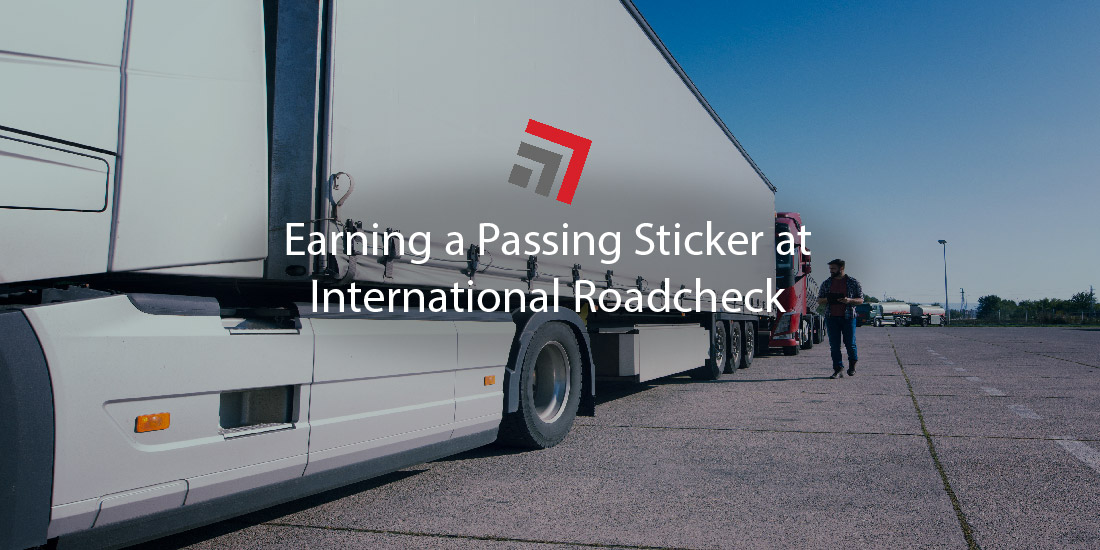International Roadcheck 2023, trucking’s annual 72-hour safety bonanza, is set to kick off May 16.
Driven by the Commercial Vehicle Safety Alliance (CVSA), certified inspectors across North America will conduct examinations of commercial trucks and drivers at designated inspection and weigh stations.
Every year, International Roadcheck provides visibility into trucking’s operational safety, including records of issued out-of-service violations and driver violations. Throughout the three-day stretch, trucks and drivers can be yanked off the road for failing to meet safety standards.
Last year, fleets couldn’t catch a “brake”.
One out of every four trucks put out of service during International Roadcheck 2022 was for brake system violations.
As a result, the CVSA has decided this year’s International Roadcheck will be all about anti-lock braking systems (ABS) and cargo securement.
To any fleets who messed up last year, perhaps it’s time to actually prepare and ensure your trucks earn a passing CVSA sticker.

Bad brakes are the biggest mistake
To the fleet managers sitting in the back, we’ll say it again—most violations in 2022 were brake related.
That’s right, the only mechanism that can safely stop an 80,000-pound missile barreling down roadways is a common violation. Oh, dear.
Inspectors believe most of these violations could be avoided with a purposeful pre-trip inspection. Many issues they come across with brakes are basic maintenance oversights, like air leaks or chafed air hoses.
Many fleets hammer home a routine to catch any potential problems. “We still keep our preventive maintenance intervals at a point where we catch most break thickness and cracked lining at the shop level,” Keith DiRuscia, Pitt Ohio’s manager of fleet maintenance, told FleetOwner.
However, while routine stops at the shop are effective in mitigating violations, the onus falls on drivers to execute proper pre-trip inspections before leaving the yard.
Drivers are the final hope of fleets to pass inspections. Of every several drivers that are responsible, there exists a flippant one who pays no mind.
Surely, the awkwardness is palpable when an inoperable parking brake is first discovered by a certified inspector and not by the driver—the one behind the wheel.
How fleets can routinely check for braking issues
As far as what to check, Bendix , a brake and safety system provider, offers tips on what fleets should check daily, weekly, and monthly within braking systems.
Everyday brake checks
- Check for damaged or loose-hanging air chambers, pushrods, or slack adjusters.
- Make sure each axle’s slack adjusters are extended to the same angle. Different angles can indicate an out-of-adjustment brake or a broken spring brake power spring.
- Examine tubing and hose condition, positioning, and connections.
Every week brake checks
- Perform a 90- to 100-psi brake application with the wheels chocked and the parking brakes released, and listen for leaks.
- Check air disc brake rotors for cracks.
- Inspect drum brake linings for wear and cracks.
Every month brake checks
- Check for moisture in the air system to prevent contamination that leads to component deterioration and system leaks.
Making sure the cargo stays strapped
Cargo securement, the other focus of this year’s International Roadcheck, put around ten percent of rigs out-of-service during last year’s stretch.
Similar to braking issues, questionable freight security being a common violation is a scary revelation for any motorists on the road.
Trucking has seen some odd spills before that can pose significant risks to the public.
The CVSA advises drivers to confirm proper cargo securement and inspect tiedowns during pre-trip and post-trip inspections as well as periodically during a trip.
To verify a vehicle’s securement, certified inspectors will check any objects onboard, including spare tires, loads, cargo, and dunnage, and ensure they’re all secured and prevented from falling, blowing, spilling, or shifting.
Depending on the weight and length of certain objects, inspectors will also confirm if there are enough tiedowns and straps and doublecheck their accordance with regulations.
Final Thoughts
While brakes and cargo security are the two headliners for this year’s International Roadcheck, inspectors aren’t turning a blind eye to other matters of safety. Tires, wheels, and lights are a few other common areas for out-of-service violations.
Drivers themselves are also inspected. They will be asked to provide operating credentials and HOS documentation while also observed on seat belt usage and for alcohol/drug impairment. Keeping false logs and driving with the wrong class license are typically the most frequent driver-related violations.
During International Roadcheck 2022, more than 12,000 vehicles and 4,000 drivers were put out of service during nearly 60,000 inspections in the U.S., Canada, and Mexico.
Please contact us if you have any questions regarding this topic or any others in domestic logistics. In addition, stay up to date with weekly headlines from both trucking and rail via our Road Map newsletter.
More blogs similar to this:



Recent Comments